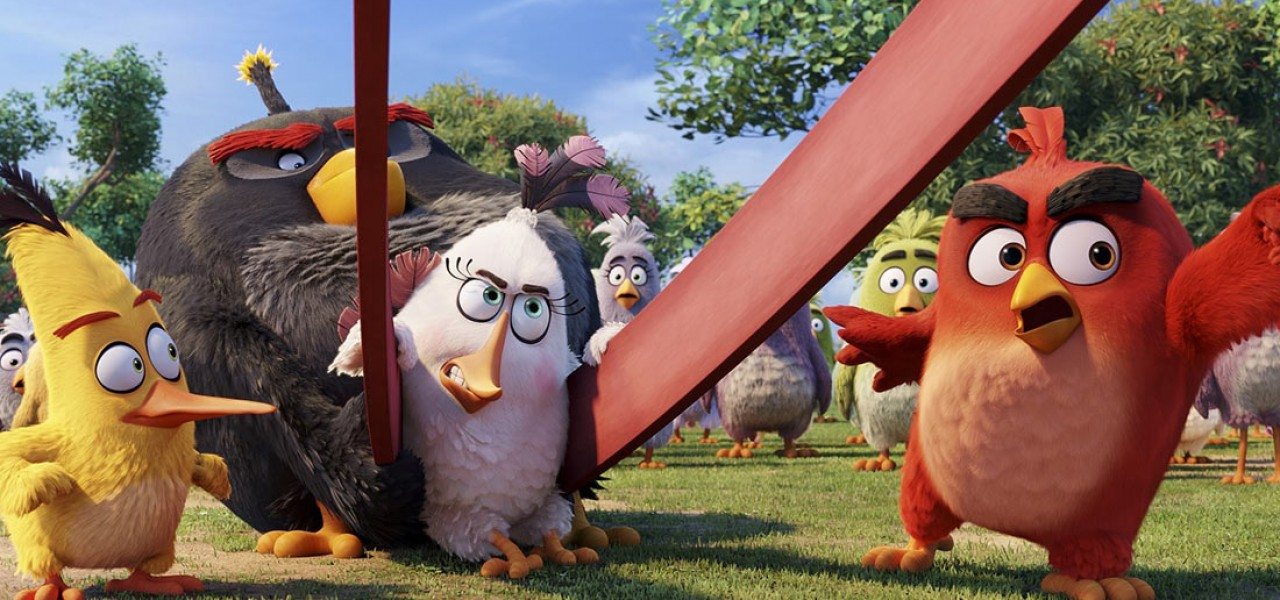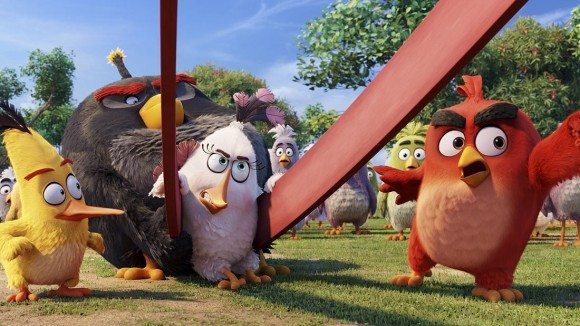

Review Roundup: ‘Angry Birds’ Fly Into Theaters With High Hopes and Low Ratings
The Angry Birds Movie arrives in 3,932 theaters today in the U.S. and Canada. The film, helmed by first-time feature directors Clay Kaytis and Fergal Reilly, launched internationally last week in over 70 territories with $43 million.
Box office analysts are suggesting that the Rovio and Sony movie will open domestically with between $37-43 million. Anything over $35 million should be considered a success, but the bigger test will be whether the film has strong box office legs in the weeks that follow.
As to be expected for a film based on a mobile gaming app, film reviewers have not been impressed with the concept. The majority have given it a thumbs down; its current rating on Rotten Tomatoes is 43%, half of Kung Fu Panda 3′s 86% rating, and a universe apart from Zootopia’s stellar 98% critic rating. Audiences have been similarly disenchanted, collectively grading it 65% on Rotten Tomatoes.
Goofy family films, however, sometimes prove to be critic-resistant, as was the case with last year’s Minions, which scored just 55% with reviewers and 50% with audiences, and still managed to become the second highest-grossing animated film of all-time. Finnish game maker Rovio, which invested the bulk of the money to produce and market Angry Birds, is obviously hoping that its feathered heroes can defy critical consensus and win over younger, less-demanding moviegoers.
Movie reviewers had a wide variety of criticisms for the film, most of which will sound familiar to regular animation viewers. Glenn Kenny in the New York Times, for example, compared the film unfavorably to the output of Dreamworks Animation, complaining that Angry Birds “settles into the current default mode of animation humor. That is, a DreamWorks-inflected, pop-culture ‘savvy,’ far-side-of-smarm (not too) smart-aleckness, replete with bodily function jokes. The kids of today deserve better. So do I, come to think of it.”
Peter Hartlaub of the San Francisco Chronicle felt the film’s core message was confused:
But the joy in this movie is almost always fleeting. Even in the most banal Alvin and the Chipmunks or Smurfs movie, there is usually some kind of central moral: “Believe in yourself” or “Family is first” or “Never stop dreaming.” The apparent takeaway for The Angry Birds Movie? Good things will happen if you’re pessimistic and capable of uncontrollable anger.
And Jen Chaney in The Washington Post questioned the film’s raison d’être:
Conceptually, it’s no more ridiculous than movies inspired by plastic construction bricks or pirate-themed amusement-park rides. The problem with The Angry Birds Movie is that, unlike The Lego Movie or the Pirates of the Caribbean films, it doesn’t take an existing product as a jumping-off point to spin a more imaginative yarn. Instead, it assumes that its audience has been just dying to find out how and why all those birds that live in our phones started slingshotting themselves into evil pigs and crates of TNT in the first place. But does anyone really care? It’s doubtful that even the most addicted Angry Birds fan ever paused the game to wonder, “But why are they so . . . so angry?”
Even the positive reviews, like Peter Travers in Rolling Stone, struck a middling tone: “It’s hard to hide the fact that Angry Birds has been repackaged way past the time when the game was a peak obsession,” he wrote. “Still, there’s no denying the movie’s high spirits or its irresistible invitation to shake your sillies out.” Or Megan Garber in The Atlantic, who qualified her mostly-upbeat appraisal by comparing it unfavorably to other recent films: “It might lack the creative vision of Inside Out, and the artistic confidence of the stridently gonzo Lego Movie…”
On the plus side, there have been few, if any, criticisms of the film’s production values. Produced by Sony Pictures Imageworks and directed by two industry veterans, the artists behind the scenes who made the film are absolute professionals, even if, as reviewers suggest, the finished product may be less than that.
Check out the film and report back here with your opinion in the comments below. As always, this talkback is open only to those who have seen the film and wish to share an opinion about it.
